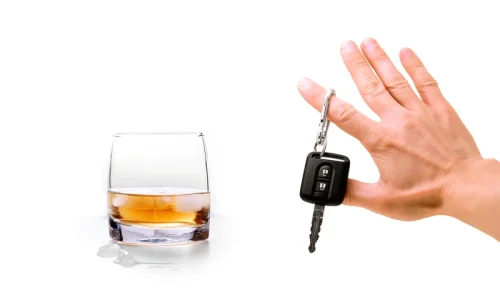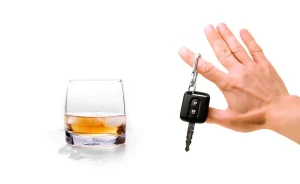
A fast treatment for amphetamine overdose improves the chances of a full recovery. Medical monitoring, medicines, and supportive care are all included in treatment for amphetamine overdose, which includes heart attacks and seizures. Taking higher doses or using it for non-medical purposes to increase its effects can lead to dependence, tolerance, and addiction. Continue reading to learn more about Adderall, signs of Adderall misuse, and treatment options available if you or a loved one is struggling with this addiction. While not everyone who takes Adderall will become addicted, those frequently taking Adderall at unprescribed doses are at an increased risk of addiction. As time passes, those who habitually take Adderall develop a tolerance to it and are unable to function normally without it.
How to Develop a Healthy Work-Life Balance During Recovery
A professional treatment plan is recommended for those exhibiting two or more symptoms. When it comes to treating addiction, it’s important to remember that there’s no one-size-fits-all solution and the most effective treatment plans are those tailored to your unique needs and circumstances. Addressing both the physical and psychological aspects of addiction Sober living house can help improve overall well-being and prevent relapse. We have all heard of it, yet many of us lack a deep understanding of what addiction is, its symptoms, causes and treatment options. The purposeful use of the term « Addictive Disorders » in the naming of this chapter was primarily due to the addition of « gambling disorder » to the DSM, a non-substance-related disorder. And here, too, among the committee members, the decision to introduce the term « addictive » into the DSM-5 was arrived at through disagreements and non-consensus.
The role of leadership programs in empowering individuals in recovery

They often feel triggered to use the drug, as well as unable to function in many circumstances without using it. Once detoxification is complete, individuals may transition into further treatment, such as residential addiction vs dependence or outpatient programs, to address the psychological and behavioral aspects of their substance use. Therapy and counseling can help individuals develop relapse prevention strategies, learn healthier coping mechanisms, and address underlying issues that may have contributed to their dependence.
The benefits of adventure therapy in building resilience

Now, you might be wondering, “Why on earth should I care about the difference? ” Well, my curious companion, understanding the distinction between addiction and dependence is crucial for several reasons. It affects how we approach treatment, influences societal perceptions, and most importantly, impacts the lives of those grappling with these issues. So, buckle up as we https://ecosoberhouse.com/ dive deeper into this fascinating topic, exploring everything from the nitty-gritty science behind it to the profound personal and societal implications. If you were addicted to caffeine, you wouldn’t be able to make the decision to stop your daily regimen of drinking coffee. One of the key challenges of addiction treatment is that it is a chronic and relapsing condition.

- Every user and treatment provider determines the length of time required for Adderall rehab.
- Long-term use of Adderall can result in a variety of health problems, ranging from minor to life-threatening.
- Dependence also affects your physical health, whether or not you have an addiction.
For one, depending on a substance to avoid physical withdrawal symptoms is neither necessary nor sufficient to define addiction. Many drugs cause dependence but not addiction, for example, paroxetine 10 and clonidine 11. But when people withdraw from these medications, they do not crave them and once successfully tapered, they do not have recurrent use. In contrast, craving and recurrent use are common symptoms of addiction, particularly during early stages of recovery. Recognising the distinctions between addiction and physical dependence is crucial for effective intervention and treatment. When you’re ready to seek help, consulting medical professionals or specialists like Rehabs UK can be the first step toward recovery.
- People can be predisposed to addictions because of their genes, biology, or psychological makeup.
- It encompasses enhancing overall quality of life, fostering emotional and physical well-being, building healthy relationships, and engaging in fulfilling activities 9.
- Regular check-ups and screenings are crucial for monitoring and addressing any potential health issues that may arise.
- Additionally, experiences of trauma, abuse, neglect, or chronic stress can contribute to the development of addiction.
- Discover the benefits, support, and triumphs on your journey to seek joy and sobriety.
Injection drug use can also lead to infections of the heart and its valves (endocarditis) and skin infections (cellulitis) due to exposure to bacteria. Prevention efforts targeted at adolescents can play a crucial role in reducing the risk of addiction. Educational programs, supportive environments, and the promotion of healthy coping strategies can help adolescents make informed decisions and develop resilience against substance use. Understanding the biological and environmental influences can help in identifying individuals who may be at higher risk for addiction. By addressing these factors and providing appropriate support, prevention efforts can be more effective.

ICD codes have not been updated to reflect current understanding of addiction, unlike those in the DSM-5. Tolerance and withdrawal symptoms are common in both physical dependence and addiction. Seeking professional treatment is recommended for those experiencing two or more symptoms of substance use disorder. People with a substance addiction may wish to quit but find it difficult to manage physical symptoms such as intense cravings or withdrawal symptoms. For individuals with severe addiction, substance abuse treatment that includes therapy and medications may be necessary. ‘Dependence’ is a term used to describe a person’s physical and psychological loss of control due to substance abuse.

